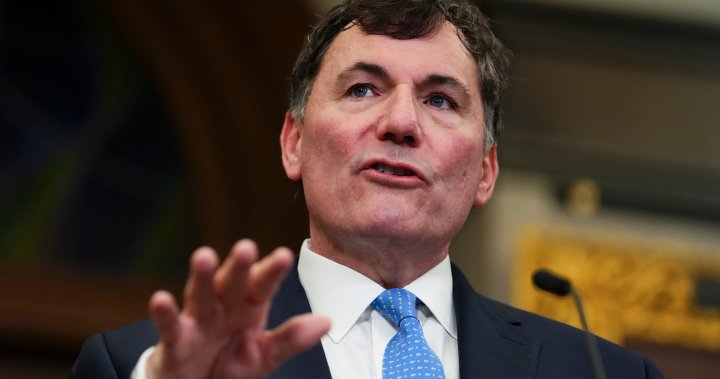Public Safety Minister Dominic LeBlanc says the federal government will begin discussions with partners on potential Emergency Act amendments in response to the Public Order Emergency Commission recommendations.
The government used the act for the first time to end the convoy protests against COVID-19 public health measures in February 2022.
The protest centred on Parliament Hill and downtown Ottawa before spreading to the Ambassador Bridge in Windsor, Ont., and the border crossing at Coutts, Alta.
Justice Paul Rouleau issued 56 of recommendations in his final report out of the commission released on Feb. 17, 2023.
Many of the recommendations focus on a lack of action and coordination among policing, intelligence and security agencies.
Breaking news from Canada and around the world
sent to your email, as it happens.
Twenty-two recommendations dealt with modernizing the Emergencies Act itself.
The government had one year to respond to Rouleau’s recommendations.

LeBlanc sent a status update on the recommendations to the prime minister in August last year.
Under the Act, temporary measures were able to be put in place such as the prohibition of public assemblies, the designation of secure places, direction to banks to freeze assets, and a ban on support for participants. The federal government argued the extraordinary measures were targeted, proportional and compliant with the Charter of Rights and Freedoms.
Earlier this year, a federal court judge ruled the government’s use of the act was unconstitutional, saying it was shown regular policing measures were able to address the protests as was the case in Coutts.
Rouleau said that while he saw the use of the Emergencies Act was justified, a reasonable person could come to a different conclusion.
— with files from Global News’ Sean Previl
© 2024 Global News, a division of Corus Entertainment Inc.




